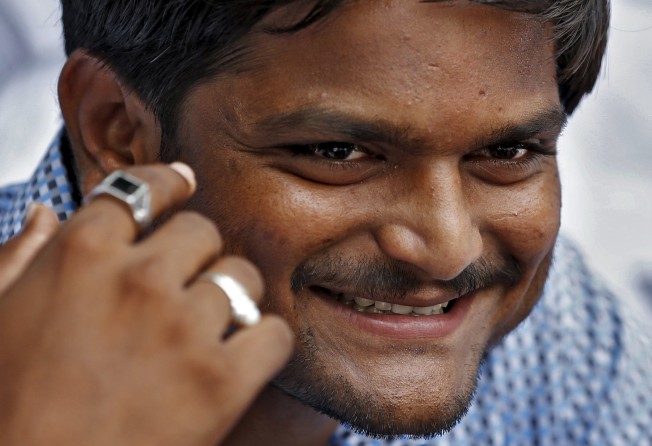Patel clan's fight to be 'backward' shows up India's outdated caste-based job and education quotas
Priya Virmani says a dominant caste's demand for inclusion in the country's caste-based affirmative action system makes a mockery of it

Hardik Patel, a 22-year-old, has put India in a quandary. He has galvanised the Patel clan to demand a place in India's model of affirmative action. Among India's most progressive communities both in India and among non-resident Indians, the Patels are now demanding to be classed among India's Other Backward Castes, a classification used in the long-standing system of affirmative action.
The Patel clamour is the latest challenge in the debate in India on caste-driven quotas.
India's rigid caste system has, for millennia, been the determining factor of the social location and economic position of a Hindu. It is a complex and efficiently unfair practice - one that successfully kept power imbalances in place over innumerable generations.
When India achieved independence in 1947, the Constituent Assembly (which wrote the constitution) made provision for reservations in jobs, the education sector and seats in parliament and the state assemblies for those at the bottom end of the caste spectrum. The intent was to give some recourse to opportunity to this segment of disadvantaged Indians. In the 1980s, the ruling party at the time, Congress, included the middle sections of the caste pyramid to the reservation categories, under the nomenclature of Other Backward Castes.
The quota system was meant to facilitate fairer access to, and equality of, opportunity. However, in practice, the policy has been controversial. The main political parties have astutely played the caste card and the reservations model for electoral gain. Even today, 68 years post independence, political victories in India's key electoral states, such as Uttar Pradesh, Tamil Nadu and Bihar, are mostly determined along caste lines.
In recent years, comparatively progressive castes like the Meena and the Gujjar communities in Rajasthan, and the Jats of the Punjab have demanded "backward" status. These and now the Patel demand make a complete mockery of the rationale of affirmative action.
If Prime Minister Narendra Modi meets the Patel demand, then by default every community in India should classify under the quota system.
Hardik Patel claims that his community, though high up in the caste pecking order, is becoming economically threatened and losing out on opportunities because of the quota system. Patel's challenge to the system is posited not on inherited caste but on the present economic standing and position of an individual. In this, he has a point - if India is to end the disorder this agitation has brought, it must revise how affirmative action quotas are determined.
Dr Priya Virmani is a political and economic analyst